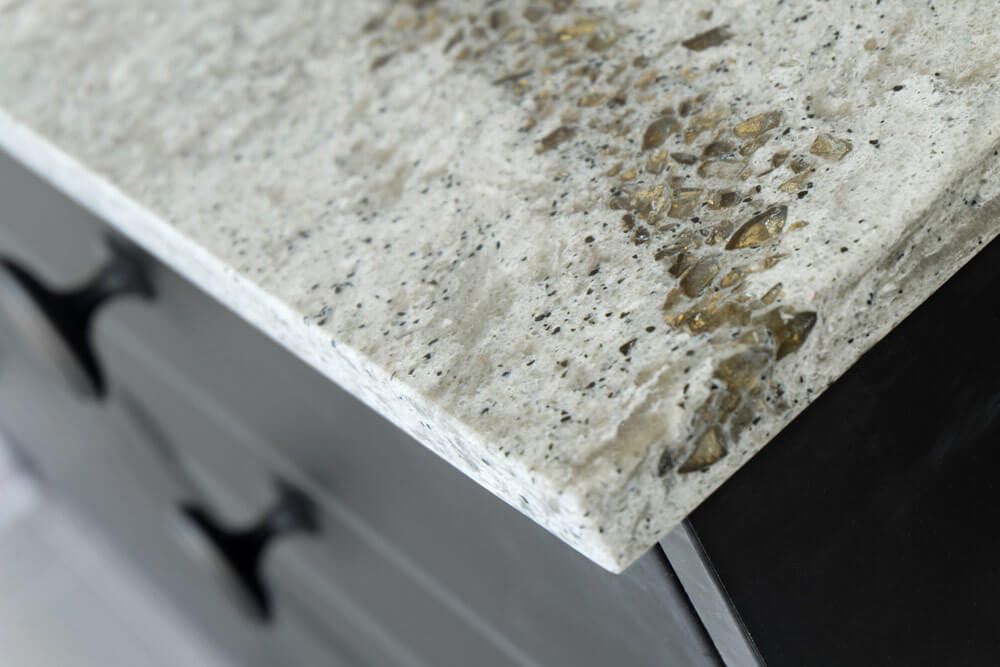by Harry Guclu
Granite Countertops are still one of the best solid surface countertop options in the market and continue applications to maintain strong demand in the housing industry. What may be a light at the end of this long tunnel; the residential housing market is doing better than ever. Housing upgrades are similarly seeing increasing demand for those selling their houses, those purchasing new homes, and existing homeowners. Specifically, countertop upgrades are one of the most popular kitchen upgrade options with 98% of consumers considering Granite Countertops for their renovation.
There are several reasons why granite countertops are so popular. First, it is affordable. Increasing efficiencies in the production process have brought granite prices down in recent years so that what has been the choice of luxury for thousands of years is now more affordable than ever. Second, there is something for everyone. There are hundreds of different granites in every color and pattern imaginable. With such a vast selection, there is sure to be something to suit every taste. Third, it is very durable. Granite is one of the hardest materials known to man. Its incredible heat and scratch resistance make it well suited for kitchen.
Additionally, as the natural stone industry continues to grow and adapt, new possibilities are continually developing. The primary disadvantage of granite through the years has been susceptibility to staining. While challenging, it is possible to stain granite; however, recent research has developed a 20 years stain protector for natural stone countertops, virtually eliminating the ages-old contention with nature’s most desired countertop material. In this case, maintenance free countertops have quickly become the fourth reason. This list could goes on and on.
Because the solid surface industry is such a large market, everyone wants a piece of the pie, and so new options are being developed primarily engineered stone. Engineered solid surface options are granite alternatives. Most commonly referred to as quartz countertops, these man-made surfaces attempt to imitate the natural beauty and utility of natural stone while offering choices that may not be available in nature. In the past, quartz countertops have always been very uniform with consistent colors, though there are new quartz products that are incredibly realistic looking with both grain and pattern movement. Engineered stones are becoming more popular every day and experienced solid surface fabricators such as Troy Granite are well suited to handle both natural and man-made countertop materials to satisfy every need.
Regarding the granite vs. quartz debate, there is one issue that should be clarified. While engineered stone is a viable alternative to natural stone, some of the marketing claims surrounding quartz products are questionable. Engineered stone makers need to steer consumers away from natural stone to make money, and so they often resort to scare tactics in their advertising.
The presence of radon in granite is one of the most common claims that they tout as a reason to choose engineered stone. In a publicly accessible article, the Marble Institute of America says about radon, “It’s in the air we breathe, in the water we drink, in the soil and rock we stand on, and in the sun’s rays, we like to bask in! Added to this is the radiation we get from human-made sources, such as x-rays, medical treatments, building materials, etc.” They go on to state that “The U.S. EPA reports: “Based on existing studies, most types of granite used in countertops and other aspects of home construction are not typically known to be major contributors of radiation and radon in the average home.” To put it in perspective there is more radon in a single baked potato than in a typical granite countertop.
So, while the engineered stone is a valid alternative to natural stone surfaces, it is essential to make your decision based upon your personal preferences rather than out of fear.


Recent Comments